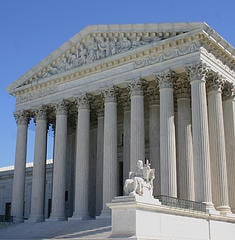Did The US Supreme Court Just End Your Ability To Wipe Out Your Second Mortgage In Bankruptcy?
Q: When can you wipe out a second mortgage?
A: If the amount that you owe on the first mortgage is greater than the market value of the house, then you can file a Chapter 13 house and “strip off” the second mortgage. In fact, if you owe large balances in delinquent property taxes and you are delinquent on your first mortgage, you can use these delinquencies in combination to “boost” your chances of wiping out a second mortgage in a Chapter 13 case.
Q: Could you give us an example of a situation where a lien strip might be allowed in a Chapter 13 case?
A: What follows is an example that illustrates how delinquent Homeowners’ Association dues and delinquent property taxes “boost” your chances to succeed in a Chapter 13 lien strip of your second mortgage that wipes out the second mortgage forever:
Jack and Diane owe $12,000 in delinquent property taxes. They also have a mortgage that is 12 months behind on payments of $2,100 monthly, of which $2,000 monthly is interest and $100 is principal paid on the loan. They also owe $3,000 in delinquent Homeowners’ Association dues. The principal balance of the mortgage is $190,000, the second mortgage home equity line of credit is $40,000, and the appraised value of the house is $210,000.
Total debt superior to the second mortgage: $229,000
– $3,000 HOA dues
– $12,000 Delinquent Property Taxes
– $24,000 Delinquent Interest
– $190,000 first Mortgage Principal Balance
As we said, the value of the home according to a certified appraiser is $210,000. However, the tax assessed value according to the county is $240,000.
After considering the facts, the judge in Jack and Diane’s chapter 13 bankruptcy case allowed the stripping and non-payment of the second mortgage balance of $40,000 because the appraised value of the home is less than the debts owed against the home that are superior to the second mortgage. The judge correctly found that it is irrelevant that the county tax assessed value of the home is $240,000. In such a case, the judge will say “So what?” that the county thinks the house is worth $240,000 – what matters here for a lien strip is the opinion of the certified appraiser hired by the Chapter 13 debtor about the value of the home.
Q: Can the second mortgage lender whose debt will be cancelled fight back in court against the Chapter 13 termination of the second mortgage debt?
A: You bet! Once the appraiser renders their professional opinion against the position of the second mortgage holder, then the second mortgage holder usually settles quickly or gives up. Sometimes a credit union lender will try to run the clock out a bit and frustrate you, but in the end they usually settle as well. Most of the big commercial lenders use better sense than a credit union and reach a settlement or give in.
Q: Can I file a Chapter 13 to get rid of my second mortgage even if I have recently had a Chapter 7 case?
A: For now, yes. Most of our local judges have ruled that back to back cases–a chapter 13 following a recently filed Chapter 7–are permissible. This might change, though. We will have to see what the future brings in these cases.
Q: Let’s say that I file a Chapter 13 case to get rid of my second mortgage now. Suppose that in 18 months after filing, the value of my home increases, can my efforts to wipe out my second mortgage be reversed by the judge at the request of the second mortgage lender?
A: No.
Q: In Chapter 13 I have to repay 100% of my debts, right?
A: No. Some people who file chapter 13 bankruptcy pay back one percent or even less of their credit cards, car repossession balance, and medical bills in their chapter 13 case. The remaining unpaid balance is discharged forever in chapter 13.
Q: Will my monthly payments in a 36 – 60 month Chapter 13 plan be large, and force me to pay back a big percentage of my debt?
A: Probably not. I have some clients who pay as little as $155 each month for 36 months to wipe out $40-50,000+ in second mortgage debt.
Q: I already just recently completed a Chapter 13. Am I excluded from filing a new Chapter 13 to get rid of my second mortgage?
A: No.



